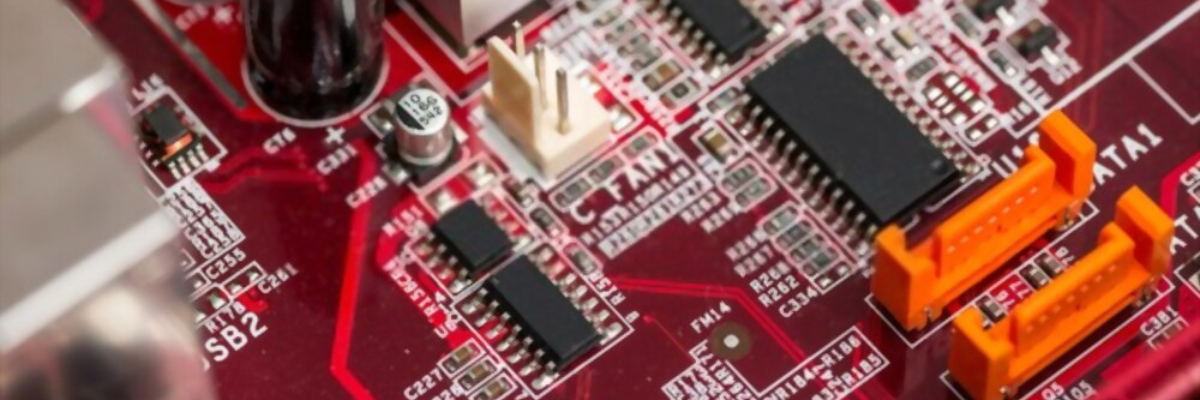Design for PCB Manufacturing: Five Important Factors for Consideration

Design for PCB Manufacturing: Five Important Factors for Consideration
The printed circuit boards are an integral part of several home appliances and industrial machines. Performance and efficiency of these machines usually depend on these printed circuit boards. Thus, a strong emphasis is laid on the design and manufacturing of these PCBs. Design for Manufacturing or DFM has gained immense importance in recent years. Nowadays, OEMs are pursuing DFM to improve their product design and lower their manufacturing costs. This post offers insights into DFM and its benefits.
A Brief Introduction to Design for Manufacturing (DFM)
This is the process of designing components, parts, or products for the ease of manufacturing at low costs without compromising on quality. DFM usually focuses on product design refinement. Although it may sound easy, the DFM focuses on five aspects – Process, Design, Material, Environment, and Compliance/Testing. The next section discusses these aspects in detail.
Five Aspects of a DFM Process
The DFM mainly focuses on these five factors:
-
Process: The choice of the manufacturing method is quite important for PCB design. If you require parts in a certain quantity then the process must reflect the efficiency, scope of production, as well as the number of processing required. While deciding on the process, most experts take into consideration the factors like the product size, the materials required for production, and so on. In addition to this, other steps involved such as surface preparation of the PCB, secondary finishing, and other details are also taken into consideration.
-
Design: The part of DFM focuses on the design of the product to determine if the design meets all the requirements of the final product. Generally, design changes and error rectification is performed in this step to ensure smooth production. If you are an OEM trying to make design changes at your end, then it must be made as per fundamental design principles. If you have partnered with a contract manufacturer then this aspect will be taken care of by the contract manufacturer.
-
Material: Choosing the right material for the PCB is important. Required strength, operational environment, and thermal properties are quite a few considerations that contract manufacturers or OEMs make in this stage. If your application requires special considerations then materials must be chosen wisely. The following are a few popular PCB substrate/laminates used generally by OEMs.
-
FR-4: It is the most popular substrate material and is suited for temperatures up to 135 degrees Celsius. The high-temperature version is also available and suited for high-density applications.
-
CEM-1, CEM-2, and CEM-3: These substrate materials are suited for high-density applications. CEM-1 has a Tg of 122˚C, however, both CEM-2 possess a Tg of 125˚C.
-
PTFE: This substrate material is widely used in high-frequency applications and has Tg between 160 ˚C and 280 ˚C.
-
Polyimide: This substrate material is suited for high-frequency, high –power and microwave applications. Polyimide is highly flexible, possesses high Tg of 250˚C, and can resist high temperatures. All these properties make this substrate material costlier than regular FR4.
-
Environment: The choice of the right material, design, and process will be influenced by the operating environment. It needs to be understood how, when, and where the product will be used. If it will be used in outdoor or ambient environments, whether the product will be exposed to high temperatures, or if it will be exposed to other challenging environments involving chemicals or other fluids. All these considerations will help make the right selection.
-
Testing/Compliance: The final aspect of DFM focuses on quality and compliance. Whether the PCB meets the quality expectations of the device as a whole and if it meets the third-party standards. Various industry organizations may have different standards. The regulatory rules may vary at the federal, state, and international levels, which may make your product unsafe and non-compliant in its existing configuration.
Having understood the importance of the right PCB design, you need to partner with a PCB contract manufacturer and assembly services that can help you refine your designs and materialize them into effective working prototypes. Twisted Traces has been one of the most experienced PCB contract manufacturers and assemblers in the US. The company has been helping its clients to take advantage of design for manufacturing (DFM) and build highly effective prototypes. It offers medium to full volume production. If you are seeking to partner with a trusted PCB assembly service, you must get in touch with the experts at the company.
.png)



.png)
